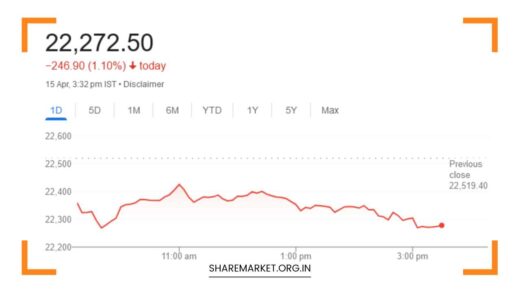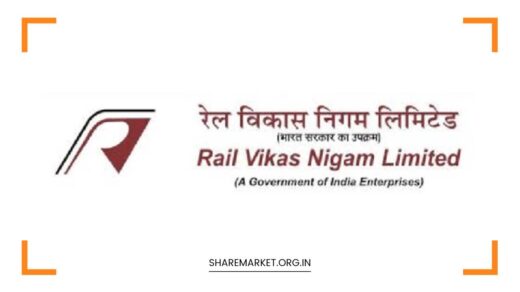Pradhan Mantri Yojana Scheme: Who Should Avoid It

Pradhan Mantri Yojana Scheme
Pradhan Mantri Yojana Schemes: Who Should Avoid Them?
India’s Pradhan Mantri Yojana (PMY) schemes have been instrumental in addressing various socio-economic challenges.
These government-backed initiatives offer a range of benefits, from affordable housing to healthcare and financial inclusion.
However, while these schemes are designed to uplift the lives of millions, they may not be suitable for everyone.
This article delves into the potential drawbacks of PMY schemes and identifies the categories of individuals who may benefit less from participating.
Understanding the Pradhan Mantri Yojana Schemes
Before we delve into who should avoid these schemes, it’s essential to grasp their core objectives. PMY schemes primarily target:
Economically Weaker Sections
The primary aim of many PMY schemes is to support individuals and families who fall below the poverty line. These initiatives are designed to address the basic needs of the economically weaker sections, ensuring they have access to essential services and opportunities for improvement.
Examples include the Pradhan Mantri Awas Yojana (PMAY), which provides affordable housing, and the Pradhan Mantri Jan Dhan Yojana (PMJDY), which aims to increase financial inclusion by providing bank accounts to the unbanked.
Rural Population
Many PMY schemes focus on rural areas, providing assistance to those residing in villages and small towns. The goal is to reduce the urban-rural divide and foster balanced regional development by bringing essential services and infrastructure to these areas.
For instance, the Pradhan Mantri Gram Sadak Yojana (PMGSY) aims to enhance road connectivity in rural areas, thereby improving access to markets, education, and healthcare.
Specific Demographics
Certain PMY schemes are tailored to address the needs of specific demographics such as women, farmers, and other marginalized groups. These schemes offer targeted support to empower these groups and improve their socio-economic status.
Programs like the Pradhan Mantri Ujjwala Yojana (PMUY) focus on providing clean cooking fuel to women from economically disadvantaged backgrounds, thus promoting better health and reducing the burden of traditional cooking methods.
The underlying principle is to create a more equitable society by providing opportunities and support to those who need it most.
Potential Drawbacks of PMY Schemes
While the intentions behind PMY schemes are laudable, it’s crucial to acknowledge their limitations:
Bureaucratic Hurdles
The application process for PMY schemes can be complex and time-consuming. Often, it involves multiple documents, rigorous verification procedures, and several visits to government offices.
This bureaucratic red tape can be a significant barrier, especially for those unfamiliar with the process or lacking the time and resources to navigate it.
For instance, obtaining the necessary documentation and approvals for the Pradhan Mantri Awas Yojana can be cumbersome for applicants living in remote areas with limited access to administrative facilities.
Limited Coverage
Not all sections of society are equally covered by these schemes. PMY schemes are primarily designed for lower-income groups and marginalized communities. Urban middle-class and affluent individuals may find limited benefits as these schemes are not necessarily tailored to their needs or financial status.
For example, while the Pradhan Mantri Jan Dhan Yojana provides financial services to the unbanked, its benefits might be marginal for those who already have access to banking and financial services.
Potential for Misuse
There have been instances of corruption and misappropriation of funds in some PMY schemes, undermining their objectives.
Misuse of resources can lead to inefficiencies and reduced effectiveness of these programs, impacting those they aim to support. Reports of funds being siphoned off or misallocated in schemes like the Pradhan Mantri Gram Sadak Yojana have raised concerns about the need for stronger monitoring and accountability mechanisms.
Dependency Culture
Excessive reliance on government subsidies can sometimes discourage self-reliance and entrepreneurship. While PMY schemes offer valuable support, they may inadvertently create a dependency culture, where individuals rely on government aid rather than seeking self-sustaining solutions.
For instance, while subsidies for agricultural inputs can provide short-term relief to farmers, they may not address the underlying issues of agricultural productivity and market access that require more comprehensive reforms.
Who Should Avoid PMY Schemes?
Based on the aforementioned factors, the following categories of individuals may not derive maximum benefit from PMY schemes:
High-Income Individuals
Individuals with high incomes and substantial financial resources generally do not qualify for most PMY schemes.
The eligibility criteria for these schemes are often based on income limits, and those exceeding these thresholds would be ineligible. High-income individuals typically have access to private sector solutions that might better suit their needs.
For example, affluent individuals seeking housing assistance may find better options through private real estate developers or premium housing schemes rather than the Pradhan Mantri Awas Yojana.
Urban Middle Class
While some PMY schemes may have provisions for the urban middle class, the benefits might be relatively limited compared to those targeted at lower-income groups.
The urban middle class often has access to a range of financial instruments and government schemes that might be more suitable to their needs. Therefore, PMY schemes may not always offer the most significant advantages for this demographic.
For instance, the Pradhan Mantri Mudra Yojana, which provides microfinance to small businesses, might offer less value to established entrepreneurs with access to conventional financing options.
Individuals with Strong Financial Literacy
People with a sound understanding of financial planning and investment options may find limited value in some PMY schemes.
These individuals are likely already equipped with knowledge and tools to manage their finances effectively and may benefit more from diversified investment strategies rather than government-backed schemes.
For instance, those who are proficient in stock market investments or real estate may find that government schemes like the Pradhan Mantri Suraksha Bima Yojana, which provides life insurance coverage at a minimal cost, do not align with their more complex financial planning needs.
Those Who Prefer Private Sector Solutions
Individuals who prefer private sector services and products over government-backed initiatives may not find PMY schemes appealing.
The private sector often offers a wider range of choices and potentially faster service delivery, which might align better with the preferences of those seeking more flexible or specialized solutions.
For example, private health insurance plans often offer broader coverage and quicker access to medical services compared to the Pradhan Mantri Jan Arogya Yojana, which focuses on providing insurance coverage for low-income families.
Individuals with Complex Financial Situations
People with intricate financial circumstances, such as high debt, multiple income sources, or specific tax implications, may find the complexities of PMY schemes overwhelming. In such cases, the straightforward and general nature of PMY schemes might not address their specific needs effectively.
Consulting with a financial advisor to explore alternative options might be more beneficial for these individuals. For example, those managing multiple income streams or dealing with substantial debt might require tailored financial planning services rather than the standard benefits offered by schemes like the Pradhan Mantri Vaya Vandana Yojana, which provides pension benefits for senior citizens.
Alternatives to PMY Schemes
For individuals who do not qualify for or prefer to avoid PMY schemes, there are several alternative avenues to consider:
Private Insurance Plans
For healthcare needs, comprehensive private insurance policies can offer broader coverage and flexibility. Private insurance often provides more tailored options and quicker access to medical services compared to government schemes.
Plans from private insurers may include additional benefits such as higher coverage limits, access to a wider network of hospitals, and customizable premium options based on individual health profiles.
Market-Linked Investments
Equity, mutual funds, and other investment instruments can provide higher returns compared to some PMY schemes.
These market-linked options offer the potential for significant growth and are suitable for individuals looking to build wealth over time. For those with a higher risk tolerance and a longer investment horizon, equity markets and mutual funds can be more rewarding than the fixed returns offered by some government schemes.
Home Loans with Competitive Interest Rates
For housing needs, banks and financial institutions offer various home loan options with attractive interest rates. These loans can be customized to fit individual financial situations and provide a more tailored solution than some PMY schemes.
Many lenders offer special rates for different categories of borrowers, including first-time homebuyers and those with excellent credit scores.
Skill Development Programs
Investing in personal and professional development can enhance earning potential and long-term financial security.
Skill development programs and vocational training can offer individuals the tools to improve their career prospects and achieve financial independence. Programs provided by private institutions or industry associations often focus on high-demand skills and provide certifications that can lead to better job opportunities.
Final Remarks
The Pradhan Mantri Yojana schemes have undoubtedly played a crucial role in improving the lives of millions of Indians. However, it’s essential to recognize that these schemes are not a one-size-fits-all solution. Individuals should carefully evaluate their financial situation, needs, and goals before deciding whether to participate.
By understanding the potential drawbacks and exploring alternative options, individuals can make informed decisions about their financial well-being. It’s always advisable to seek professional advice to tailor a financial plan that aligns with personal objectives.
Note: This article provides a general overview and does not cover all PMY schemes in detail. Specific eligibility criteria and benefits may vary. It’s essential to refer to official government sources for accurate and up-to-date information.
Disclaimer: The following article provides general information and should not be considered financial or legal advice. It is essential to consult with a qualified professional for personalized guidance.

















